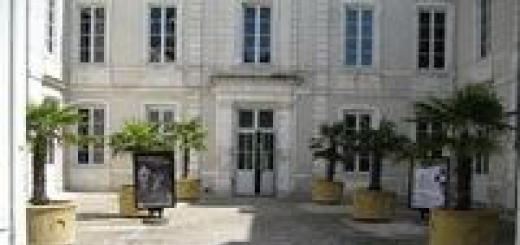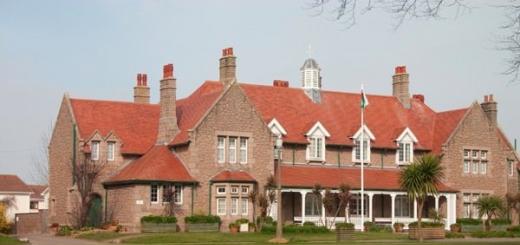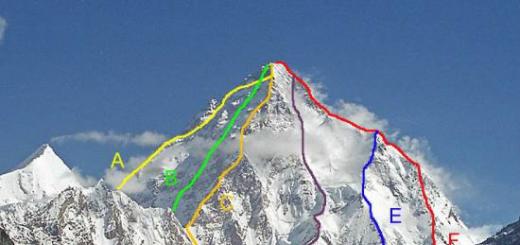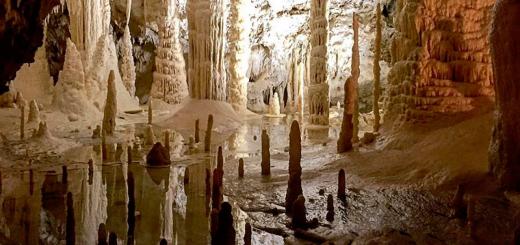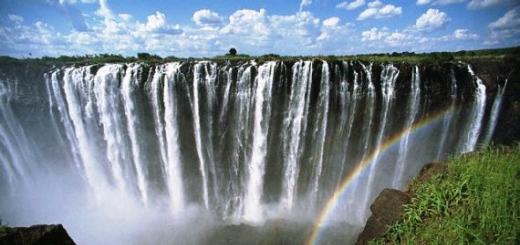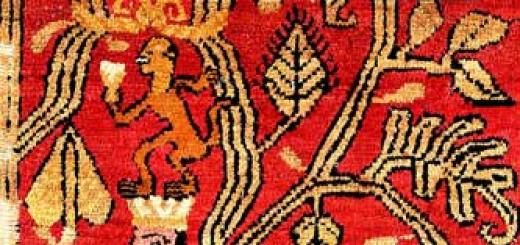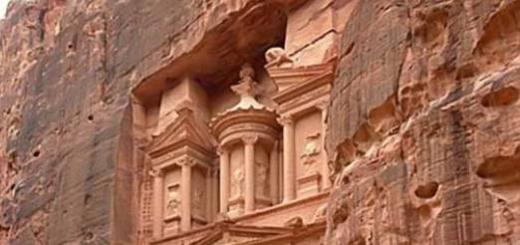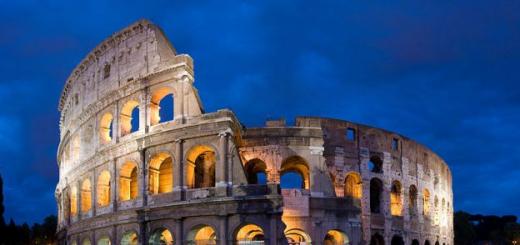The bay is a great place to get away to yourself. But they can be both a serene corner and an excellent anchorage for vacationers on a yacht. The most beautiful bays are in the Mediterranean Sea. They have a bewitching beauty that fills you with peace, inspires and adds strength for new exploits.
Cala Violina Bay
A wonderful place with clean fine sand and clear blue-turquoise sea. The area is considered part of the Scarlino Nature Reserve. The bay is located in the small town of Italy-Maremma. Because of the fine sand, the bay beach is very popular with vacationers with small children. There are two ways to get to the bay: through the village of Puntone by bike or via the 158 motorway.
White Bay Camerote
The bay is considered the most beautiful bay in the Mediterranean Sea. It is located in the city of Camerot in Italy. It is believed that this is an earthly paradise. For the sake of dazzling beauty, it is worth putting aside all your affairs. Fabulous landscapes, crystal clear water. The bay got its name because of the white color of the sand and stones. In 2013, the bay won the “The most beautiful is you” competition.
Apulia
The bay is located between the best resorts in Italy - Mattinata and Viesta. It is considered part of the Gargano National Park. The name comes from the fragrant flowers of the orange tree. If some bays have a mixed purpose, then Puglia is created only for enjoying a holiday in harmony with nature. This is an orange bay with high cliffs that protect you from the daily bustle. She is the symbol of all the beauty in Puglia.
Sicily
This is the red northwestern slope of the island of Favignana. This is a popular bay of the Mediterranean Sea. It is surrounded by rocks that reach low to the water. The water here is an unusual blue color. There are many flat rocks on the shore. You can get to the bay by yacht by sea.
Sardinia
Small spiky bay in Santa Teresa Gallura The smallest bay in the Mediterranean Sea. Despite its size, it offers picturesque views. It is surrounded by high cliffs. This bay is loved by tourists who engage in active recreation. The rocks here are extraordinary. They took on a rounded shape. To get to the beach you need to follow the Capo lighthouse.
Goloritze Bay
In 1993, the bay received its name “natural monument”, and in 1995 - “national monument of Italy”. It is located near Sardinia. This is one of the best bays in the Mediterranean Sea. Attracts visitors with its perfectly polished rocks and nature. Lovers of ancient architecture are attracted here by the rock arch called Punta Goloritze. This is what is worth visiting Goloritze Bay in the first place. Climbers from all over the world come here for the rocks of the bay.
Villefrance Bay
Charming bay in France. This is the largest harbor of any Mediterranean port. An ideal place to moor ships. Yachtsmen love to relax here on their luxury yachts. They believe that there is no safer place to relax on a yacht. The bay is also suitable for large ships. The water depth reaches 95 meters.
Guest House Russian Bay located a few steps from the shore of the Azov Sea in the village of Mysovoye, in the Lenino area. We have only been working for three years, but we have already made many friends and every year there are more and more of them. Our beach is cleaned daily, there are sun loungers and umbrellas, and the entrance to the water is very smooth - the depth is about 15 meters, so swimming with kids is completely safe.
The number of rooms at the Russian Bay guest house is very wide and everyone can choose a room in accordance with their wishes and requirements. Rooms are cleaned daily. Seventeen comfortable single, double, triple and quadruple rooms are equipped with modern furniture, air conditioning, refrigerator and internet. Bathrooms are located inside the room. Laundry and ironing services and a shuttle service are available. Each room has a balcony or loggia, offering stunning views of the sea.
The area adjacent to the guest house has a parking lot and a children's playground. In the courtyard there is a gazebo with a barbecue, where you can barbecue and relax in the company of friends or family, while admiring the sun setting over the horizon. The guest house has its own store and cafe, where you can order food for yourself and your children from an individual menu. We will gladly take into account all your wishes so that your stay at the Russian Bay guest house leaves only pleasant memories in your soul.
Mysovoye is located next to the larger village of Shchelkino, and a little further is the regional center of Lenino, from where routes lead to different directions of the Crimean Peninsula. We will be happy to help you organize an excursion or horseback riding. Come and enjoy the gentle sea and warm sun on the shores of the Azov Sea.
Reservations:
To guarantee your reservation, a prepayment of 10% of the cost of your stay is required.
Nutrition:
- Guests of Russian Bay have the opportunity to make an individual order at the Coral cafe for dishes that are not on the menu.
- Cafe at the guest house
- parking
- transfer
- excursions
- horseback riding
- boat ride, jet ski
- laundry service
- ironing board
- playground
- parking
- backgammon
- use of barbecue
- chaise lounge
If you define the word bay, you get something like: “a body of water surrounded by land, having a calmer state than the open sea. The bay is a good anchorage for ships during bad weather.” Bays often represent the most beautiful sights in the countries where they are located. We present to your attention the top 12 most beautiful bays in the world!
- Wineglass Bay, Tasmania, Australia

4. Bay of Islands, New Zealand

8. Ha Long Bay, Vietnam

Halong Bay is a UNESCO World Heritage Site. It has thousands of limestone karsts and islands of various sizes and shapes.

9. Marigot Bay, Saint Lucia

Marigot is located on the west coast of the Caribbean island of St. Lucia, 3.75 miles (6 km) southwest of Castries, a short distance from the Luciana Marine National Park. The bay is surrounded on three sides by forested hills. The bay is a historical landmark, having been the site of many battles between the French and British navies.

10. Phang Nga Bay, Thailand

It is located between the Andaman Sea, Phuket Island and the mainland of the Malacca Peninsula from southern Thailand. Since 1981, a large part of the bay has become Phang Ngi National Park. Phang Nga is a small bay that includes 42 islands. There are 88 species of birds, including Malaysian Plover, 82 species of fish, 18 species of reptiles, 3 species of amphibians and 17 species of mammals.

11. Hanalei Bay, Hawaii, USA

Hanalei is the largest bay on the North Shore in Hawaii. The bay consists of almost two miles (3 km) of beach surrounded by mountains. Many visitors to this bay consider it the most beautiful beach in Hawaii.

12 Villefrance Bay, France

This is the most beautiful bay in France. Villefrance is one of the deepest natural harbors of any port in the Mediterranean and provides a safe haven for large ships, reaching depths of 95 m (320 ft).
Once upon a time there lived a Russian province. Soldiers marched along it, barracks and “public places” were built, it even had its own Admiralty. Thousands of subjects in Orthodox churches offered prayers for the health of Empress Catherine II. Everything was as it should be, but this province was thousands of miles from Russia.
GENIUS DESIGN
This is a true but long forgotten story. On June 26–27, 1770, a Russian squadron under the command of Count Alexei Orlov burned the Turkish fleet in Chesme Bay. The enemy lost 14 ships, 6 frigates and up to 50 small vessels. The trophies of the winners were the 60-gun ship "Rhodes" and 5 large galleys.
Generally speaking, the expedition itself to the Mediterranean Sea was a brilliant strategic plan of the great empress and her advisers, who would later be called “Catherine’s eagles.” After all, before this, not a single Russian warship had even sailed into the Atlantic, except for the transfer of newly built combat units from Arkhangelsk to Kronstadt.
According to the original plan, it was supposed to land small troops on the territory of mainland Greece, and then the “sons of Hellas” were supposed to rebel, drive out the Turks and provide their ports to the Russians. However, the Turks concentrated large forces in the south of the Balkan Peninsula, and the rebel leaders did not get along with each other and were never able to create a regular army. As a result, the Russian paratroopers had to return to the ships.
After Chesma, Catherine II did her best to force Alexei Orlov to fight his way through the Dardanelles and bombard Istanbul from the sea. The Turkish fortifications in the strait were then very weak, and the task seemed easily accomplished. But the count was afraid. As a young captain of the guard, he was not afraid to plot against the legitimate emperor in favor of his German wife, who had no rights to the Russian throne, and later personally kill Peter III. But after Chesma, the general-in-chief was at the zenith of his glory. Previously, he, a nobleman from a not very noble and not very rich family, risked only his head, and with luck he gained everything. Now he could lose everything, and if he was lucky, gain nothing. But he already possessed everything that a subject of Her Majesty could possess.
And then Orlov, with the sanction of the empress, decides to found a Russian province on the islands of the Aegean Sea.
HER MAJESTY'S SUBJECTS
It is unknown who proposed making the island of Paros the main base of the Russian fleet. In any case, strategically it was chosen well. Paros belongs to the Cyclades Islands (southern Aegean Sea) and is located in the center of them. Thus, by owning Paros, you can easily control the Aegean Sea and the approaches to the Dardanelles Strait, which is about 350 km away.
On October 15, 1770, the squadron of Count Alexei Orlov, consisting of the ships “Three Hierarchs”, “Rostislav”, “Rhodes”, the bombardment ship “Thunder”, the frigates “Slava”, “Victory” and “St. Paul” arrived at the island of Paros.
Over the course of several months at the end of 1770 and the beginning of 1771, 27 inhabited islands of the Aegean Sea were occupied by the Russians or voluntarily went over to their side, and the local population turned to the command of the squadron with a request to accept them as the citizenship of Catherine II.
At the time of the capture by the Russians, 5 thousand people lived on Paros, the overwhelming majority were Orthodox Greeks. They were engaged in arable farming, viticulture and sheep breeding.
There were no Turkish authorities on the island, and the Greeks joyfully welcomed our ships. Russian sailors used both bays of the island - Auzu and Trio, where ship moorings were equipped. But the capital of the “province” was the city of Auza, built by the Russians on the left bank of the bay of the same name.
First of all, the bay was fortified; two redoubts with stone parapets for nine and eight 30- and 24-pound guns were built on its left bank. A 10-gun battery was placed on an island at the entrance to the bay. Trio Bay was also fortified accordingly.
The Admiralty building was erected on the left bank of Auza Bay. Yes Yes! Russian Admiralty! The Baltic Fleet had an Admiralty in St. Petersburg; there was no Admiralty on the Black Sea at that time, just as there was no fleet, but on the Mediterranean Sea an Admiralty arose for our Archipelago Fleet. Dozens of shipwrights went to Auza from St. Petersburg.
Large ships were not laid down in Auza, and there was no need for this, but ships of all ranks were repaired. But they built a large number of small sailing and various rowing vessels.
Auza was filled with various administrative buildings, bakeries, spinning mills, and sailor barracks. I note that the ground forces, for some objective, but rather subjective reasons, were stationed outside the city. Thus, the barracks of the Shlisselburg Infantry Regiment were located on the right bank of Auza Bay. In the depths of the island there was a camp of the Life Guards Regiment of the Preobrazhensky Regiment. They even founded a gymnasium in Auza, where hundreds of Greek boys studied.
The province of 27 islands was supposed to provide a fleet of up to 50 pennants and several infantry regiments. Therefore, the aborigines were subject to a tribute (10 percent tax) on bread, wine, timber, etc. A certain portion of the tax was collected in money. In addition, part of the supplies was purchased by the Russian authorities, but the author was unable to establish the proportion between the goods paid for and the taxes collected. But, alas, there were not enough taxes, and Orlov did not want to become a burden to the friendly Orthodox people. Basurmans must pay for everything!
The Greeks, especially the islanders, already controlled most of the maritime traffic in the Mediterranean from the 15th century. They considered piracy a completely legitimate business, as if part of trade. The only thing that held back the Greek corsairs was the power of the Turkish fleet. Chesma and a number of other Russian victories freed them from the Turks. Even before Chesma, several Greek owners of merchant ships (they were also captains) came to Orlov and asked for Russian citizenship. The count willingly accepted the Greeks and allowed St. Andrew's flags to be raised on their ships.
And so frigates, brigs, xebecs and galleys flew all over the Eastern Mediterranean under Russian flags. Let us remember that the huge Turkish empire had almost no roads, and trade was carried out mainly by sea. Every year, hundreds of Turkish, and let’s be honest, neutral ships became the prey of Greek “gentlemen of fortune.” Moreover, sometimes a mixed (Russian-Greek) crew under the command of Russian officers also went cruising. The corsairs made several daring raids on Turkish ports in Asia Minor, Syria and Egypt.
Turkish maritime trade was paralyzed, and famine began in Istanbul. The Turks were rescued by the French, who, under their flag, transported food and other goods to the capital of the Ottoman Empire. Count Orlov and the Russian admirals demanded from Catherine II permission to seize all French ships indiscriminately, but the queen did not allow this.
TO THE NEW HOMELAND
On July 25, 1774, a Turkish half-galley with a white flag approached the Russian squadron of Admiral Elmanov, stationed near Tasso Island. Major Belich (a Serb in Russian service) arrived on it with a letter from Field Marshal Rumyantsev, which stated that peace had been concluded with the Turks on July 10.
Alas, the hopes of the Greeks were not justified. Our admirals promised them that after the war, if not all of Greece, then at least the “province” would become part of Russia. And now the Turks were supposed to return to the islands. As far as possible, Catherine tried to ease the fate of the people who trusted her. The peace treaty included an amnesty clause for all Greeks, Slavs and Albanians who fought on the side of Russia. The Russian consulates in Greece were entrusted with monitoring the implementation of this condition by the Turks. Anyone from the population of the island province was allowed to sail to Russia on Russian and Greek ships.
Thousands of Greeks left for a distant country, most of them settled in Crimea and on the coast of the Azov Sea. The gymnasium was transferred to St. Petersburg.
Several corsair frigates with Greek refugees - "Archipelago", "Tino", "Saint Nicholas" and others - disguised as merchant ships, passed through the Straits, and then became one of the first ships of the nascent Black Sea Fleet.
Catherine ordered the formation of a Greek infantry regiment in Crimea. Many Greek pirates became admirals of the Russian fleet. Among them are Mark Voinovich, Panaioti Alexiano, Anton Alekiano.
The Kuchuk-Kainardzhi peace turned out to be only a short truce. In August 1787, the Ottoman Empire again declared war on Russia. The captains of a number of ships of the Black Sea Fleet were Greeks from the first generation of corsairs, and the Sevastopol squadron of the Black Sea Fleet was commanded by the old pirate Mark Voinovich.
Antalya, Adalya (Antalya), a bay in the eastern part of the Mediterranean Sea, off the southern coast of Asia (Turkey). It juts out into the land for 74 km. The width at the entrance is 216 km. The banks in the west and east are high, in the north they are low-lying and sandy. Islands: Grambusa, Trianesia, Rashat. The depth at the entrance is up to 2000 m, at the shore - 82 m, 91 m. The tides are semidiurnal and their height is 0.4 m. The Aksu and Kopryu rivers flow into it. Port of Antalya.
- - Bac Bo, Gulf of Tonkin, Gulf of the South China Sea off the coast of China and Vietnam. Separated from the open sea by the Leizhou Peninsula and Hainan Island...
- - city in southern Turkey, adm. c. Ilya. Founded during the reign of King Attalus II of Pergamum and named after him Attalia; modern Turkish ...
Geographical encyclopedia
- - Bay of Anadyr Bay, on the Chukotka coast of the Bering Sea; in front of Cape Meechken, which limits the entrance to K. Bay from the E, there is a dangerous stone bank. The depth of the bay is from 6 to 10 fathoms....
- - a bay in the Primorsky region, on the southwestern shore of the Sea of Okhotsk, northwest of the Bay of Happiness, deepens into the mainland 5 versts, width is about 8 versts...
Encyclopedic Dictionary of Brockhaus and Euphron
- - Agion Oros, Agiou Oros, a bay in the northwestern part of the Aegean Sea, see Singitikos...
Great Soviet Encyclopedia
- - Aqaba, Gulf of the Red Sea, between the Arabian and Sinai peninsulas. Length 180 km, width up to 28 km, depth up to 1828 m. Separated from the Red Sea by an underwater threshold up to 958 m deep. Port - Aqaba...
Great Soviet Encyclopedia
- - I Antalya Adalya, a bay in the eastern part of the Mediterranean Sea, off the southern coast of Asia. It extends 74 km into the land. The width at the entrance is 216 km. The banks in the W. and E. are high, in the N. they are low, sandy...
Great Soviet Encyclopedia
- - Baikal, an internal bay of the Sakhalin Gulf of the Sea of Okhotsk off the northern shore of the island. Sakhalin...
Great Soviet Encyclopedia
- - Bristol Bay, a gulf of the Bering Sea, off the southwestern coast of Alaska. The width at the entrance is about 480 km, the depth is 27-84 m. From November to March - April it is covered with floating ice...
Great Soviet Encyclopedia
- - Vlora, Vlora Bay, the bay of the Adriatic Sea off the coast of Albania; separated from the Strait of Otranto by the island of Sazani and the Karaburuni peninsula. Length 17.5 km. Depth up to 51 m. Irregular semi-diurnal tides...
Great Soviet Encyclopedia
- - Gabes, Lesser Sirte, Gulf of the Mediterranean Sea, off the northern coast of Africa...
Great Soviet Encyclopedia
- - Gorgan, Gorgan Bay, Astrabad Bay, Caspian Sea Bay off the coast of Iran. It juts out into the land for 63 km between the mainland and the Miankale Peninsula...
Great Soviet Encyclopedia
- - a city and port in southern Turkey, the administrative center of Antalya. 378 thousand inhabitants. Metallurgy, textile enterprises, ship repair...
- - m. - off the eastern coast of Spain. Length 42.5 km, width 144.5 km, depth up to 500 m. The main port is Valencia...
Large encyclopedic dictionary
- - GULF OF LYON Mediterranean - off the southern coast of France. Length 93 km, width at the entrance 245 km, depth St. 1000 m. To the Lyon Hall. the river flows into Rona. The main port is Marseille...
Large encyclopedic dictionary
- - noun, number of synonyms: 3 city resort port...
Synonym dictionary
"Antalya (Mediterranean Bay)" in books
Mediterranean countries
From the book Nikolai Vavilov author Reznik Semyon EfimovichFrom The Hague to the Mediterranean
From the book The Age of Admiral Fisher. Political biography of the reformer of the British Navy author Likharev Dmitry VitalievichFrom The Hague to the Mediterranean on August 2, 1890, Fischer received the rank of rear admiral. In the same year, he presented to the Admiralty a memorandum "British and Foreign Artillery", which summed up the rearmament of the fleet during his tenure as chief
From the book Yiddish Civilization: The Rise and Decline of a Forgotten Nation by Krivachek PaulFrom the Mediterranean to the Baltic
Beach of the Mediterranean Sea
From the book Mystic of Ancient Rome. Secrets, legends, traditions author Burlak Vadim NikolaevichScourge of the Mediterranean Sea If the ancient Romans, as many researchers claim, were not a maritime nation, then their predecessors, the Etruscans, became famous for their ability to conquer the expanses of water. This people dominated for many years throughout the Tyrrhenian Sea. Etruscan fishermen
"Safe" of the Mediterranean Sea
From the book 100 Great Mysteries of French History author Nikolaev Nikolay Nikolaevich“Safe” of the Mediterranean For two whole months, the British fleet under the command of Rear Admiral Horatio Nelson had been scouring the Mediterranean Sea. It was not possible to stop the landing of the French army in North Africa, and, therefore, now there is only one thing left - to cut off
Guarding the Mediterranean
From the book St. George's Knights under the St. Andrew's Flag. Russian admirals - holders of the Order of St. George, I and II degrees author Skritsky Nikolay VladimirovichGuarding the Mediterranean The American War of Independence, which began in 1776, soon led to clashes between England, France and other great maritime powers, competing for advantages on trade routes and in the colonies.
On the shores of the Mediterranean Sea
From the book of Atlantis of the sea Tethys author Kondratov Alexander MikhailovichOn the shores of the Mediterranean Sea, the catastrophic explosion of Santorini-Strongyle, which occurred in the middle of the 2nd millennium BC. e., without a doubt, was reflected in the legends and myths of the peoples of the Eastern Mediterranean. However, if accurate data from volcanology and
From the Mediterranean Sea to the Caspian Sea
From the book of the Macedonian the Russes were defeated [Eastern Campaign of the Great Commander] author Novgorodov Nikolay SergeevichFrom the Mediterranean Sea to the Caspian Sea On the fourth day of Alexander's march across Asia Minor, the Persians met the Macedonians at the Granica River. They stood on the steep right bank of the river, and it was unprofitable for the Macedonians to attack, which Parmenion pointed out to the king. But Alexander, true to his rule
Mediterranean pie
From the book I Explore the World. Treasures of the Earth author Golitsyn M. S.Pie of the Mediterranean Sea One day, American oceanologists, studying the bottom of the Mediterranean Sea, came to an unexpected conclusion. At its bottom, among ordinary marine sediments, minerals were discovered that are formed at temperatures above 40 °C. Moreover, these minerals interspersed with
Antalya (Mediterranean Bay)
From the book Great Soviet Encyclopedia (AN) by the author TSBGabes (Mediterranean bay)
From the book Great Soviet Encyclopedia (GA) by the author TSBBristol Bay (Bering Sea)
From the book Great Soviet Encyclopedia (BR) by the author TSBIskenderon (Mediterranean Bay)
From the book Great Soviet Encyclopedia (IS) by the author TSBBeyond the Mediterranean
From the book Nutrition for the Brain. An effective step-by-step technique for enhancing brain efficiency and strengthening memory by Barnard NealOutside the Mediterranean Some people praise the Mediterranean diet, meaning a diet that emphasizes vegetables, fruits, beans and pasta, favors fish over meat, olive oil over butter, and has room for a little
In the Mediterranean squadron
From the book Cruiser I rank "Rurik" (1889-1904) author Melnikov Rafail MikhailovichIn the Mediterranean squadron, the Mediterranean Sea is an ancient sea road, a witness to the birth and death of great civilizations of the past, a centuries-old arena of fierce battles - and at the end of the 19th century. remained one of the main areas of interest of the European powers. In different parts

